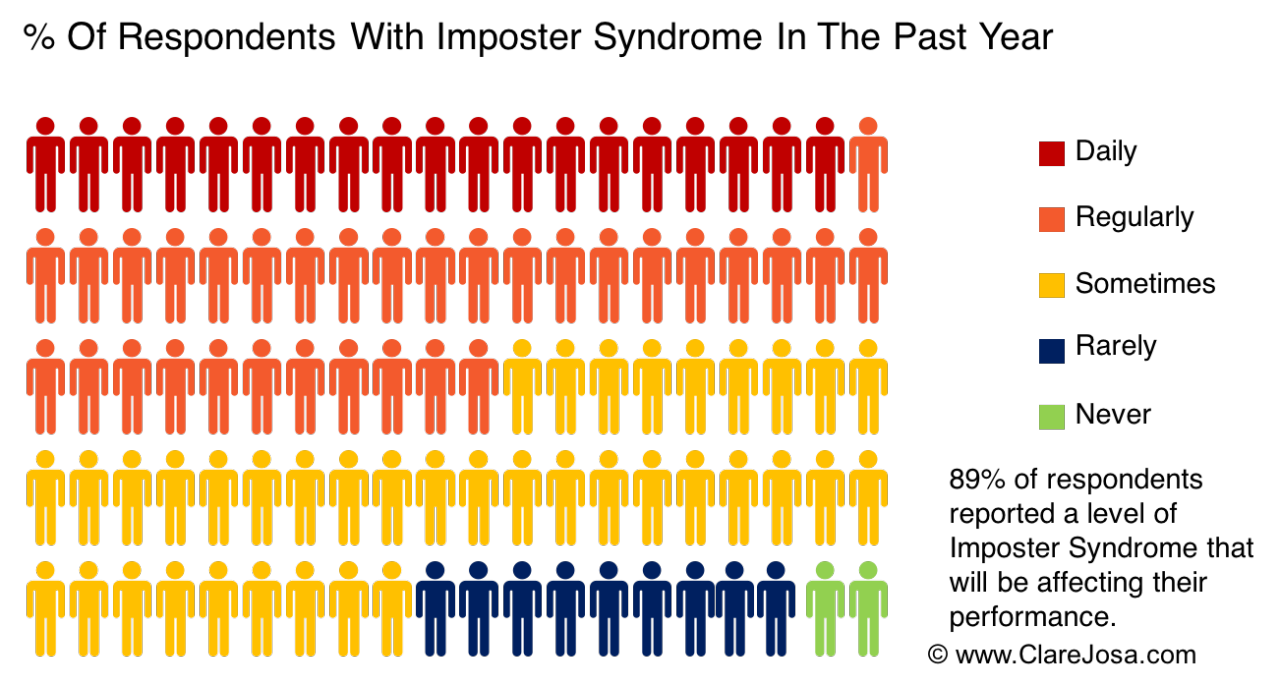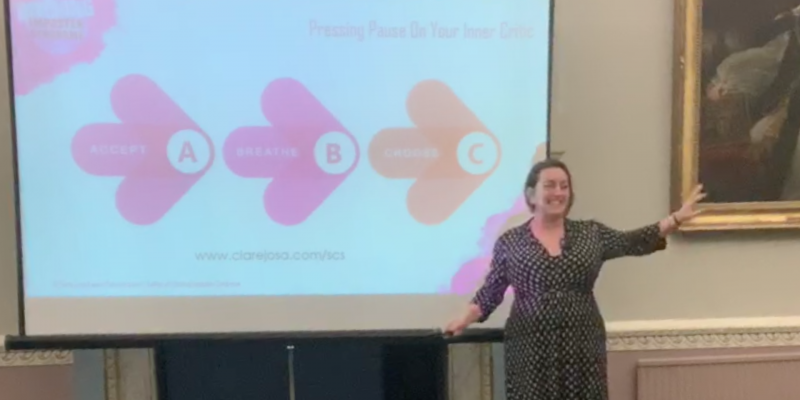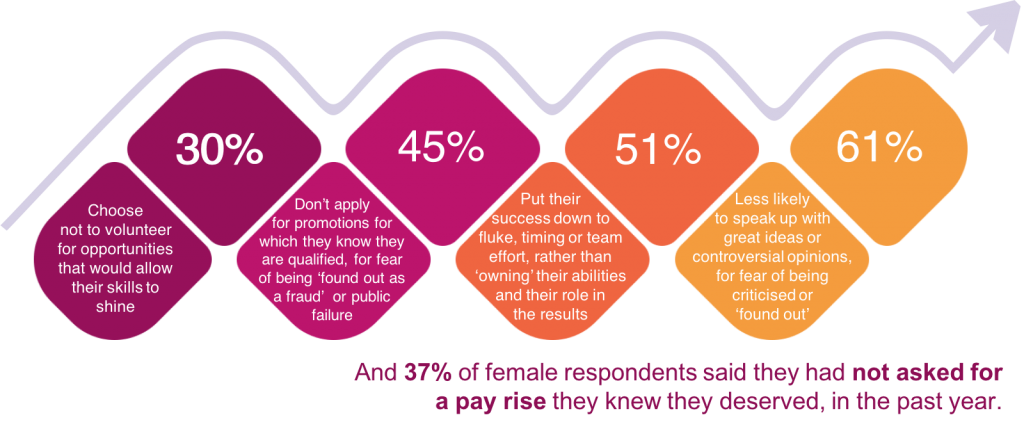In the first week of the UK lockdown, I did some research on how people were handling the massive changes they had been through. The responses that came back, even at that early stage, were heart-breaking:
“I’m just about coping.”
“I’m putting on a brave face.”
“I’m pretending I’m fine, but inside I’m really wobbling.”
Now, nearly four weeks later, the responses to the same questions I asked back then are even stronger. People are telling me that they’re ‘scared’ about how they will juggle work with having their kids ‘at school’ at home. They feel the pressure of deadlines they know they can’t meet. They’re exhausted from endless hours of video calls. They are stressed about not being able to go out. They’re worried about how to fit in queuing for food with juggling everything else.
And they’re all unanimous that this is the right thing to do. But it’s taking a toll on their mental, emotional and physical health, already.
We’re all so busy ‘coping’ that we’re focusing on ‘surviving’ and ‘thriving’ has gone out of the window.
But that means we’re setting ourselves up for problems after all of this, with the stress, worry and anxiety that people are ‘pushing on through’ right now lining us up for burnout – and worse.
And what happens with the 52% of women and 49% of men who were already struggling with Imposter Syndrome (the fear of being found out as a fraud or not good enough), before all of this started?
Here’s how Imposter Syndrome is making the lockdown even more challenging.
People who struggle with Imposter Syndrome are really good at hiding it. They can appear outwardly confident and successful, but their secret 3am self-talk has them drowning in worrying about being ‘found out’ as not belonging in the role they’re in.
This means that many people who struggle with Imposter Syndrome are already living with chronic stress, as those fear-based thoughts trigger the body’s ‘fight-flight-freeze’ response, to help them to stay safe from the imagined threat of someone else realising they don’t know as much as they ‘should’.
When we live with chronic stress, we become ‘wired’ to be more easily triggered by simple things like the tone in someone’s email or the phrasing used in a conference call. This kind of thing can trigger a bout of Imposter Syndrome with a throwaway comment.
With everyone else in the world also now being super-stressed, this is affecting communication. People are becoming less patient and tolerant than they were, before. They are more likely to be triggering each other.
And the coping mechanisms for someone with Imposter Syndrome have disappeared. They can’t just pop to a colleague’s desk any more for a reassuring chat. They’ can’t have lunch with someone who could boost their self-belief. They have lost the routine and daily rhythm that helps us to feel safe.
Lockdown Has Created The Conditions For A Perfect Storm For Imposter Syndrome
People cope with Imposter Syndrome (which is totally fixable) by engineering their environment and their job so that they feel safe. One of the biggest triggers for ‘dormant’ Imposter Syndrome to rear its ugly head is major change, such as a promotion or a change of boss.
The massive changes in the past month mean that ‘safety blanket’ has been removed for many people, so they are feeling scared and vulnerable. This is making their Imposter Syndrome symptoms worse.
When I ran the 2019 Imposter Syndrome Research Study, the data allowed me to develop what is called the ‘4 Ps’ model. These are four behavioural warning signs that Imposter Syndrome could be running for someone – potentially at a level that needs support.
Here’s a snapshot of the 4Ps model:
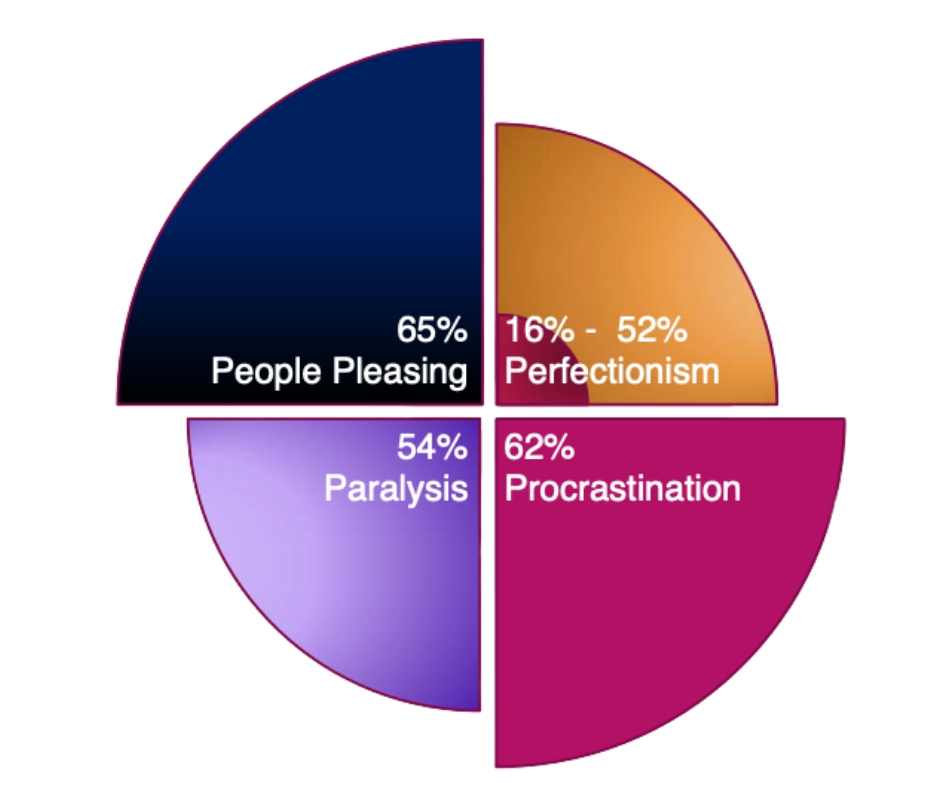
Perfectionism
16% of respondents admitted to running perfectionism, but 52% actually showed it as a clear behaviour, in their research study responses.
In lockdown, this is manifesting as setting unrealistically high standards, not just for work, but for childcare, home schooling, and creating healthy immune-system-boosting meals.
People (still predominantly women) are feeling the pressure to be superwomen.
Procrastination
‘Busyness’ – staying busy in order to avoid working on a project that is outside of our comfort zone is a problem for 62% of people who struggle with Imposter Syndrome. Now we are at home with a myriad of other things to distract us (live online news, the housework, children, partner, food shopping, general worrying) this is getting worse. And it can lead to people falling further behind on their work and working until late at night, to catch up, once the children are asleep.
Project Paralysis
This is the classic ‘avoiding the project until the deadline forces us to push on through our fears’. Without the support of colleagues and leaders in the workplace, I’m seeing more people struggling with this. It’s easier to avoid a project when no one is watching, but this behaviour is a major stress trigger.
People-Pleasing
Taking on tasks that don’t really belong to you, helping people outside of your team, or switching priorities to subconsciously please someone after a meeting are all examples of the stress-behaviour that comes from us wanting to be liked and accepted in our tribes. But we no longer get to see our fellow tribe members each day. And this is causing major issues for those who struggle with people-pleasing, as they crank up this behaviour, in order to feel like they belong.
Of course, many of us can exhibit these four behaviours without having Imposter Syndrome. But what is key is how Imposter Syndrome makes them worse.
And what my research is showing is that the lockdown is making these behaviours even more acute.
Those who are struggling with the secret fear of feeling like they’re not good enough and that they only got to where they are through ‘luck’ or ‘fluke’ are pushing themselves harder, beating themselves up more, and feeling even less confident than ever before. And they’re doing their utmost to hide it. It will be affecting their performance, their productivity, their working relationships and their mental and emotional health.
And there’s another problem:
So many people are wearing ‘burnout’ as a badge of honour.
This isn’t new to the pandemic-world – we’ve seen our teams doing it for decades, starting early and arriving late, with presenteeism rewarded over results.
We’ve been training ourselves to burn ourselves out, counting hours-worked as a sign of success, and secretly judging those who get their work done and leave on time.
What Can You Do As A Leader?
It’s important to make sure you’re still getting the one-to-one time with your team members – and to have time where you can just chat, not just about work. It’s not about turning into a therapist. But it is about finding a way to replace those impromptu ‘do you have a minute?‘ chats that naturally happen in a face-to-face working environment, so you can spot if someone needs support.
We also need to cut people slack. Companies need to stop pretending this is ‘business as usual, but from home’.
I’ve supported people in the past few weeks who have been sobbing, because they have no idea how they will deliver on their work deadline, whilst also home-teaching their children, cooking meals for everyone, and putting food on the table. Something needs to give. If you can, take non-essential projects off the table.
And it’s important to offer proactive training and support to your team members, to help them to learn how to become naturally resilient – to be able to healthily bounce back when times are tough, without lining themselves up for future problems.
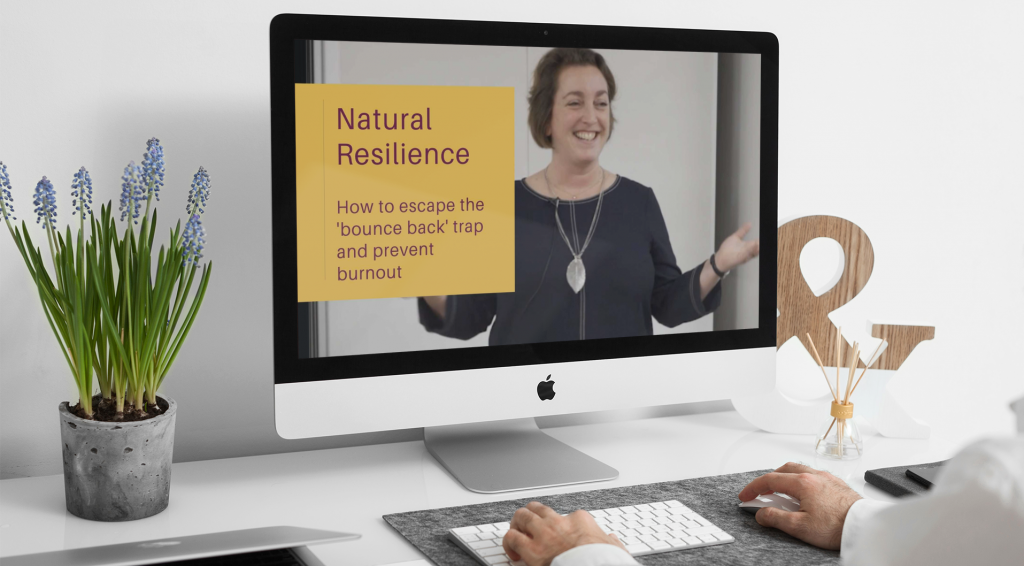
I offer a 90-minute online workshop on natural resilience, which attendees have described as ‘life-changing’ and ‘I wish I had had this years ago’. It teaches you how to press ‘pause’ on the self-talk that triggers most of the stress we experience in life, how to gently retrain your inner dialogue to become more supportive, and how to use the ‘resilience antidote’ to feel calmer, more confident, and happier, no matter what is going on around you – without pretending.
If you’d like me to run an in-house (online) round for your company, please book a call here.
And if you want to deep-dive and clear out Imposter Syndrome, as well as becoming naturally resilient and preventing burnout, Stepping Up To Lead is a ground-breaking leadership development programme that creates breakthroughs in under 90 days.
Want More Like This? Get Clare's Monthly Inspiration For Business Leaders
PS Spam stinks. You will only receive my monthly newsletter, plus occasional updates on our research studies and relevant events. You can opt out at any time.




